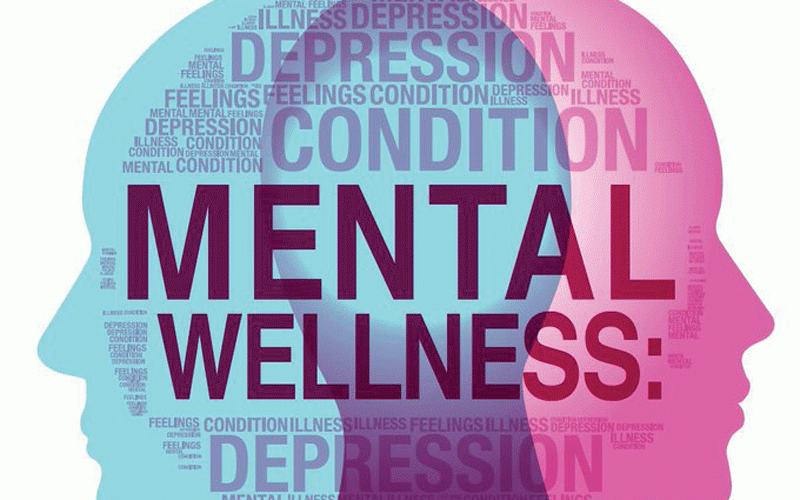
LIFE can feel like walking through a field of thorns, each step being a reminder of people’s struggles and sorrows.
For some, this journey becomes so overwhelming that they see no other way out than to escape it entirely. Those who continue to endure, however, often find themselves wrestling with a haunting question: “Why?”
They look around and see others with lives filled with joy, health and prosperity, while they battle against waves of depression, anger, sickness and poverty.
This stark contrast stirs deep emotions, leaving them searching for meaning in the face of life’s uneven challenges.
One such individual is Erica Mazengera (31) from Gurure village in Rusape, Manicaland province.
Struggling with a mental health condition that hinders her ability to process and articulate thoughts clearly, Mazengera’s life is a constant battle.
She functions at a pace slower than most, a reality that has left her vulnerable in ways unimaginable. Her vulnerability was exploited in 2021 during a desperate search for work in Mashonaland East province’s Dema communal lands.
There, an unknown man took advantage of her condition and left her pregnant.
“When I learned I was pregnant and approached him, he rejected me, saying handiroore benzi (I cannot marry someone with mental challenges). My efforts to find him afterwards were in vain. Some believe he ran away, wanting nothing to do with me,” Mazengera said.
Some good Samaritans from the area took Mazengera back to her widowed mother, who never anticipated that any sane person would do something like that to her daughter.
“It is heartbreaking how some men exploit those with mental health issues,” said Ambuya Mazengera.
“I never expected anything like this, but when life presents such challenges, we have no choice but to accept and move forward, painful as it may be.”
For Mazengera and her mother, life had yet another painful twist in store. When this new challenge struck, it hit both women hard, leaving them reeling.
She told NewsDay that she went for an ultrasound scan at Rusape General Hospital, eager to know if her unborn child was healthy.
The news she received, however, was heart-wrenching.
The doctors told her that her baby boy, later named Tadiwa, was likely developing hydrocephalus — a condition where too much cerebrospinal fluid in the ventricles (cavities) builds up in the brain.
“The doctors in Rusape told me that to give my child a normal life, the fluid in his brain needed to be removed after birth. But when Tadiwa was born, I had no money for the procedure. I just brought him home, hoping for the best,” Erica said.
Over the past year, the situation has only gotten worse.
Tadiwa, who just turned one, now has a head much too large for his small body. His eyes often gaze downwards, and there’s a noticeable bulge on the soft spot at the top of his head. He struggles with frequent vomiting and experiences difficulty in suckling or feeding.
Currently, Tadiwa is admitted at Sally Mugabe Central Hospital in Harare, where he needs a Magnetic Resonance Imaging scan.
“This scan is crucial to find out why there’s so much fluid in his brain,” said a medical doctor at the health facility.
“It could be a blockage, a problem with how his body absorbs the fluid, or maybe his body is making too much of it. Each day is a race against time to understand and help this innocent boy,” he said.
Sadly, Tadiwa’s mother is facing a heartbreaking reality.
She does not have the means to raise the US$200 needed for his treatment.
Without a job, and with only the small income from the farming she does with her mother, there is little hope of raising the necessary funds.
Their day-to-day life, already a struggle, offers nothing extra for such crucial medical expenses.
“I can’t afford the US$200 needed for the hospital scan,” a tearful Mazengera said.
“My mother and I are both unemployed and can’t raise that amount. I appeal to anyone who can help to please come forward, as this situation is overwhelming me. It’s agonising to see an innocent child suffer like this. Other children his age are playing and smiling, but Tadiwa has not known such happiness, and it hurts me deeply.”
Besides the US$200 for the scan, Erica faces an even bigger challenge: the cost of any treatment that Tadiwa might need afterwards.
This can run into hundreds of dollars, which is far beyond what she and her mother can hope to raise. This comes at a time when Mazengera is struggling to afford food at the hospital while she needs to breastfeed Tadiwa.
Their situation is dire, with each day bringing new worries about whether they will raise the required money.
They hope that Tadiwa’s father, God knows where he is, will come back to his senses and be there for his son.










